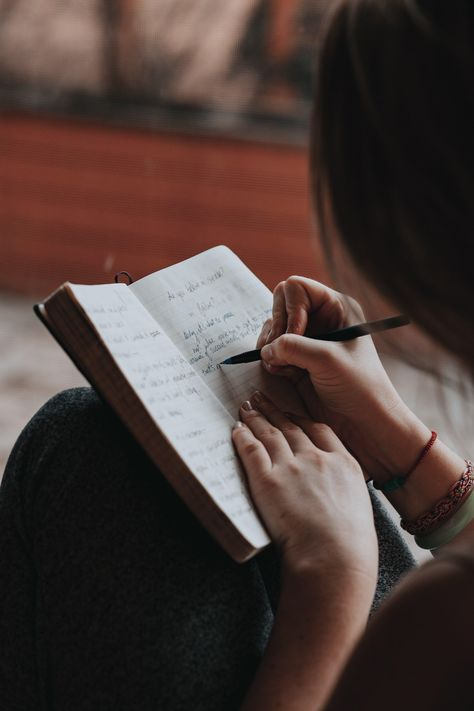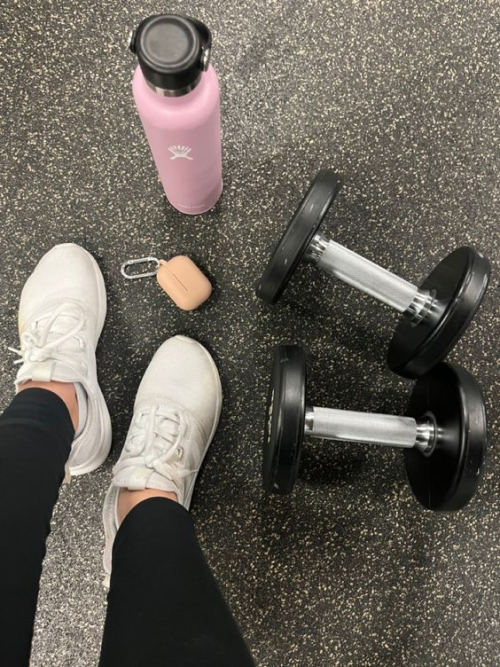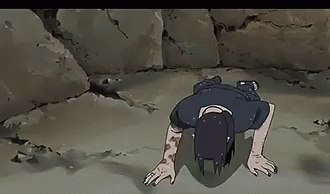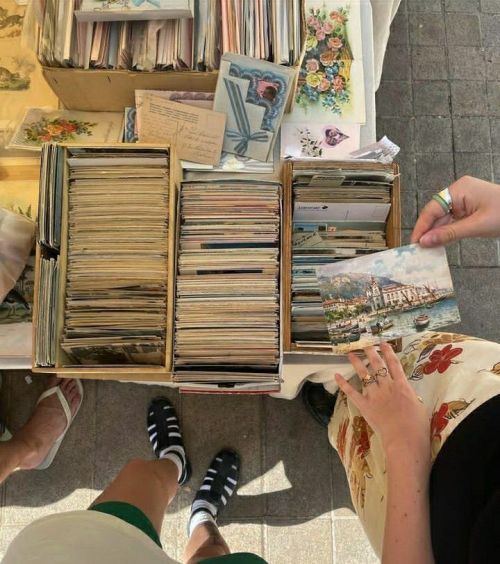
18 | nb | navigating my love for math
446 posts
Bmaf-luml - Dan - Tumblr Blog
Femme Fatale Guide: Products & Services Worth The Splurge
Fashion:
A great couple of bras in black/nude (your best skin-toned shade)
Comfortable, breathable, and seamless underwear
Outerwear (Coats, jackets, blazers)
The perfect pair of jeans
An LBD that works from day to night
Comfortable, sturdy, sleek, and timeless footwear (a versatile black boot, a black heel, white sneaker, and a black flat/loafer/sandal)
A timeless and versatile crossbody or shoulder bag (a larger one for the daytime/work or school and a smaller one for nighttime/events)
One or two well-made classic jewelry item(s)
A conversation-starting item or accessory
Beauty:
Sunscreen
Any skincare/skin cosmetic products that are game-changers for you
A quality hair brush, comb, and hair towel
Your signature scent
A quality razor/hair removal product
Vitamin C/Retinol serums
Reliable hair tools and sturdy nail tools
A quality hair heat protectant/scalp cleansing or conditioning spray
Makeup brushes and beauty tool cleaners
Home:
Lamps/lighting
Couch/desk chair
Everything for your bed: Bed frame, mattress/sheets/pillows, etc.
Knives
Dishwasher-safe and microwave-safe dishes & cups you love
A full-length mirror
Vacuum
Storage solutions/cedar blocks or moth balls
Quality holders for everything: Paper towels, shower storage, hooks, mailbox/key bowls
Name brand paper products/household cleaners
Electric toothbrush & Waterpik
Sound-proof headphones/Airpods
MacBook Air
Health & Wellness:
High-quality lettuce and/or sprouts
Organic frozen fruits and vegetables (if fresh is too pricey)
BPA-free canned goods
Potassium bromate & glyphosate-free grain products
Snacks free of artificial colors
Quality coffee
An at-home massage tool/heating pad
Fur products for skin/hair removal
Vitamin C/Retinol serums
Quality running shoes
Anything that goes near your vulva or into the vagina: Sex toys, lube, condoms, toy cleaners, pads/tampons/menstrual cups, cleansing wipes, etc.
A yoga mat, resistance band, and a pair of small ankle weights
Spotify subscription
Books and audiobooks
Services:
Therapy
A top-tier haircut
House cleaning (even if it's only once every couple of months)
Top-tier hair removal/brow maintenance services of your choice
Best doctors, dentists, OB/GYN, and dermatologists you can get
At least one personal training/styling session in your life
Professional/Social:
Ownership of the domain for your full legal/professional name and/or business name
A CPA/bookkeeper/fiduciary financial advisor
Automation workflow/content management system software
A lawyer for contract review/LLC services
Personalized stationery/"Thank You" cards
Memorable client gifting for the holidays/milestone successes
Niche skill-based certifications (Google, AWS, Hubspot, etc.) or courses made by trusted professionals in your field
Subscriptions in world-leading and industry-authority digital publications
•°•Hot Girl Tips•°•
Hydrogen peroxide removes period stains
Rubbing alcohol and/or hand sanitizer removes nail polish
The amount of water you need to drink= your weight÷2, then that number÷8 so for example 100÷2=50÷8=6.25 so if you weigh 100 pounds you would need at least six 8oz glasses of water per day
Sugar wax>>> here's a recipe: 1 cup of white sugar, 1/4 cup of water, 1/4 cup of lemon juice (lime works too) combine the ingredients in a saucepan and let them boil until golden brown. The easiest way to test the wax is to have a small bowl of ice water and drop a little bit of the wax into it. When the wax is ready, you'll be able to roll it into a soft ball and it will keep its shape. When this consistency is reached, put it in a glass jar (make sure the jar isn't cold otherwise it will crack) and let it cool off for at least an hour. Once cool, apply it in the opposite direction of hair growth and wax awayyyy
Diy cuticle oil: olive oil and vitamin E oil. You could add a drop or two of essential oil if you want. The amount of oil you need depends on your container so for mine it was a tablespoon of olive oil and 1 teaspoon of vitamin E.
Diy dry shampoo: 3 parts cornstarch and 1 part baking soda.
Healthy drink to ease bloating and get in your vitamins and minerals: 1/2 cucumber, a few sticks of celery, kale or another dark green of your choice, lemon juice, turmeric (a little goes a long way) and ginger. Fresh is best but any ginger you have will work. Fill the blender to the max line with water, and blend until liquid. You can strain it if you want, but you don't have to. It doesn't taste great, but in the long run it is worth ittt
Smelling good is such a wonderful thing for so many reasons. First, pick a scent. Or at the very least a top 3 like I have: vanilla, Dior Blooming Bouquet, and Sol De Janeiro '68. I also use the classic scent from Soap and Glory (rose and bergamot). The first and most important thing is to find a good deodorant. Which one works for you depends on your body chemistry, but dove is always a safe bet :). Next, find a good shower routine. Having all of your shower products smell similar will keep the scent lasting longer. And, of course, shower at least every other day. Washing your hair is different bc your hair washing routine depends on your hair type. And of course you must find a body lotion that matches your other shower products.
Last and final tip for today: keep your nails and hands healthy and pretty by moisturizing your hands with hand cream. I like this one by Burts bees, this one from Eucerin, and this one from Dior (pricey I know but it's w o r t h itt).
That's it! Tysm


some eldritch blasts


Danez Smith, from "summer, somewhere"
✨Get Ready with me...✨
for the second semester of my 3rd year of college






(all pics from Pinterest, btw)
Part 1: Academic life and free time
📚 My Classes: ☕
- Introduction to Biomaterials (IB) - Biomechanics - Informatic Systems (SI) - Electronics - retaking this class since i failed it last year I also have the bachelor's Project. The one i chose is about The role of internal states in everyday decision making.
📝 Academic Goals: ✨
- get better grades than last semester - try to understand early on the semester which way of studying works for me - go!!! to!! my profs!!! office time!!! for goodness sake, if you don't understand anything from your class, that's literally the best place to learn it - learn how to prioritize stuff - being up to date with my classes - maybe post my learning progress of all my classes?? idk if anyone would be interested in it, but i'll try to be more specific about what I'm learning
🍃🪻Free time:🪻🍃
I want to become much more intentional about my free time. Not just lying on the floor and doom scrolling. And also find ways to stop myself when I find myself going back to just waste energy doing stuff I'm not even enjoying
Specifically:
- read more books - keep watching some shows I've been putting behind bc i haven't feel like i was paying them enough attention. I've been saying this for over 2 years, get over it - exercise again. The cold always makes it so hard to exercise, but the weather is getting nicer, so i should go back to it soon
Part 2 (friendships and mental health) here
Get your pussy up get your money up. You’re gorgeous btw

get my pussy up,,,,,,, get my money up,,,,,,,,,

240612 - bts on twitter: I'm back!
having online friends who are busy is just like. I LOVE YOU. I miss you. YOU GOT THIS. I'm giving you space to work. I LOVE YOU.


You're not always going to be motivated. So you must learn to be disciplined.

hello all! i have written quite a few research papers during my time in university, and these are some of the tips and tricks i’ve used while writing! (disclaimer: these are from the perspective of a history and spanish major so the process may be different for other majors and of course everyone is different! this is just what helps me)
1. spend time at the library
this is the most important tip in this post, hence its spot as number 1. not only is it great to spend time writing in the library to help you focus, but there are countless resources at your university’s library that will help you write the paper. depending on your university, you may have archives, an extensive array of books on the subject, and staff members specifically hired to help students do research. take advantage of these resources!
2. write an outline
having an outline is immensely helpful while writing a research paper. it helps you organize your thoughts and write more cohesively, especially when the paper is 8+ pages long. another important part of outlines is coming up with a clear thesis before you start writing so research is guided by a main point.
3. go to your professor’s office hours
going to office hours can be helpful in multiple ways. your prof can help you identify a topic, can read over a rough draft, and give you research tips. as professors, they have done research themselves and can help point you in the right direction. plus, professors love when students visit their office hours because a majority of their students don’t, so your professor will appreciate it!
4. give yourself time to revise a rough draft
including myself, we have all procrastinated. the last couple years of school have been really hard, so don’t blame yourself if you find yourself behind on your work. but, if you can, writing a rough draft ahead of time and working on the paper throughout the semester can make the final product so much better! try to find a friend (or your professor!^) to read the rough draft to get multiple eyes on the paper. some professors will even require that you submit a rough draft for the class.
5. do research at an archive
obviously this is not possible for every paper you’re assigned in college. but, if it’s for an important class for your major, doing research in person at an archive can make your paper unique and make you stand out. find a local institution or your university’s archives and see if they have any sources relevant to your topic. then, make an appointment or just show up (depending on their policy) and gain access to archival materials!






𝗑, 𝗑, 𝗑, 𝗑, 𝗑, 𝗑






















BANGTAN through the years 💜 HAPPY 10 YEARS BTS, FUTURE'S GONNA BE OKAY! ♡ I can’t wait to spend another 10 years with you.
i have a question: why do you keep sabotaging yourself? why is it that as soon as you think something is just out of your reach you do everything you can to get in your own way? why is it that as soon as things seem to be going right, you plant your feet and sit on the ground with your legs crossed?
you're not fucking lucky. you worked for it, you sweated, and you cried, and you sacrificed so much to reach the level of knowledge and skill you have now.
have you worked so hard only to say "how lucky"? no, damn it, i won't let you. you may not be a genius, you may not be the best in the world, but do you fucking think anyone could do what you did? do you think anyone could get to where you are? do you believe that anyone has the possibilities that you have?
put this in your head, you are not unexpressed potential, you are exceptional and with your hard work you can achieve unimaginable things. stop wasting your dreams just because they seem too big for the drawer.
edit : in italian we say "dream in the drawer" when we refer to a hope that is unlikely to come true, but not impossible.
ex. my dream in the drawer is to become a famous singer all over the world
(just in case you didn't understand the last sentence)

Andrea Gibson, Lord of the Butterflies

I hope everyone grows tired of being cruel to each other soon
one of the biggest things I can advocate for (in academia, but also just in life) is to build credibility with yourself. It’s easy to fall into the habit of thinking of yourself as someone who does things last minute or who struggles to start tasks. people will tell you that you just need to build different habits, but I know for me at least the idea of ‘habit’ is sort of abstract and dehumanizing. Credibility is more like ‘I’ve done this before, so I know I can do it, and more importantly I trust myself to do it’. you set an assignment goal for the day and you meet it, and then you feel stronger setting one the next day. You establish a relationship with yourself that’s built on confidence and trust. That in turn starts to erode the barrier of insecurity and perfectionism and makes it easier to start and finish tasks. reframing the narrative as a process of building credibility makes it easier to celebrate each step and recognize how strong your relationship with yourself can become


organization 101
organization is about how we gather stimuli in our environment to complete tasks quickly and more effectively. it's about arranging our surroundings, providing order, and structuring items and activities around us.
this topic can be applied in so many instances - including physical spaces, digital files, schedules, and mental clarity.
staying organized offers several benefits:
★ when you're organized, you waste less time searching for things or figuring out what to do next. this efficiency leads to increased productivity
★ clutter and chaos can contribute to stress. an organized environment promotes a sense of calm and control.
★ organization helps you allocate time effectively. you can prioritize tasks and allocate resources efficiently.
★ a clutter-free workspace (or living space) allows you to concentrate better on the task at hand.
★ organized spaces encourage healthier habits, such as regular exercise, balanced meals, and adequate rest.
but how can you stay organized?
★ start with one area of focus (e.g. closet, desk, documents, ...) and gradually expand. focusing on one area allows you to see tangible progress, and as you declutter or organize, you'll build momentum to tackle other spaces.
trying to organize everything at once can be overwhelming. by narrowing your focus, you can prevent feeling swamped. concentrating on a specific area also allows you to learn effective strategies,, which you can apply to other parts of your life!
★ keep a to-do list. you can use a planner or digital tools to track tasks - and prioritize and sort tasks by urgency. write things down promptly to avoid forgetting them.
by freeing your mind from trying to remember all of your tasks, this mental offloading allows you to focus on the present moment. you can also assign urgency and importance, ensuring you will tackle what matters most.
★ give everything a home. clutter happens when items lack designated spaces. organize your physical and digital spaces intentionally.
★ once organized, maintain order consistently by building habits and systems. regularly review and adjust your systems when needed.
maintaining daily habits can significantly contribute to staying organized.
digital files
personally, the biggest issue i have with organization is building (and maintaining) a good system for digital files. it is crucial for me to learn how to organize these well, however, as a digital creator.
here is the process:
★ create a folder structure,, and design a clear hierarchy of folders that reflect your workflow. organize files logically based on projects, departments, dates, or file types.
at the moment i sort my files as content home < links, content plan, instagram, pinterest, tumblr, youtube < scheduling, post ideas
however, sometimes i find myself with documents that don't fit any of these sections. my plan for the future is to reorganize this to be the most effective it can.
★ use descriptive file names,, and name files clearly and concisely. include relevant keywords to make searching easier
★ consider using tags to categorize files across multiple dimensions. tags enhance searchability and allow flexible organization.
this is something that i am looking to employ!
★ utilize cloud services like google drive or dropbox for easy access from anywhere.
i will forever be a notion girl,, even though it is not quite a cloud service, it allows me a similar experience.
★ make decluttering a routine. delete duplicate or unnecessary files.
★ pin essential folders to your sidebar for quick access.
physical decluttering
writing this, i was reminded of the (horrid) bedrotting trend, especially those videos where people would show their rooms with shit everywhere and mould growing on stuff. i'm aware that some people find it super hard to maintain organization or declutter - hoarding is a very real issue.
the benefits of staying organized were previously mentioned, but decluttering specifically has its own little set of positives. this includes reduced stress, improved focus, enhanced productivity, and more positive overall wellbeing.
here are some essential tips if you are struggling to get started:
choose a small area or category to begin decluttering. set a timer (15-30 minutes) and sort items in that area into 'keep', 'donate', 'trash', or 'unsure' piles.
you could also attempt a room-by-room approach, by tackling one room at a time. focus on completing each room fully before moving on to the next.
try to organize your belongings into categories (keep, donate, sell, discard) to make decisions easier.
remember - progress comes from consistent effort, and small steps lead to a clutter-free space.
further reading
i hope today's post was helpful!
as for further reading, check out these sites: ★ How to Declutter Your Home: 6 Best Room-by-Room Methods (thespruce.com) ★ First Steps to Decluttering - Understanding the Clutter - Being Minimalist ★ Productivity, Organization & Personal-Development | 101 Planners ★ Executive Functioning Skills 101: Organization | Life Skills Advocate ★ How to Be Organized - 10+ Habits - Organized 31 ★ How to Be More Organized & Productive | 10 Habits for Life Organization (youtube.com) ★ How to Be More Organized (verywellmind.com) ★ How to Organize Your Digital Files | Reviews by Wirecutter (nytimes.com) ★ Master How to Organize Digital File Management (riverfy.com)
❤️ nene
image source: pinterest






University of the Philippines, Diliman
technically done with my first year so here are some of my fav shots i took in the campus 🤧 see u in a couple of days again 🫠

Free MIT online courses that sound interesting
Arts & Literature
Introduction to World Music
Reading Fiction
Literary Interpretation: Virginia Woolf's Shakespeare
Introduction to Photography
Foundations of Western Culture II: Renaissance to Modernity
Studies in Poetry - Briths Poetry and the Sciences of the Mind
Studies in Literary History: Modernism: From Nietzsche to Fellini
Screen Women: Body Narratives in Popular American Film
Studies in Poetry: "What's the Use of Beauty"
Queer Cinema and Visual Culture
Monteverdi to Mozart: 1600 - 1800
Writing and Experience: Reading and Writing Autobiography
Advanced Topics in Hispanic Literature and Film: The Films of Luis Buñel
Major Authors: Rewriting Genesis: "Paradise Lost" and Twentieth-Century Fantasy
Arthurian Literature and Celtic Colonization
Contemporary Literature: Britsh Novel Now
Studies in Poetry: 20th Century Irish Poetry: The Shadow of W. B. Yeats
Writing About Literature: Writing About Love
Introduction to European and Latin American Fiction: Great Books On The Page and On The Screen
Popular Culture and Narrative: Use and Abuse of the Fairy Tale
Victorian Literature and Culture
Reading Poetry
English Renaissance Drama: Theatre and Society in the Age of Shakespeare
Introduction to Fiction
International Woman's Voice
Major Authors: Oscar Wilde and the "90's"
Prizewinners: Nobelistas
American Authors: American Women Authors
Shakespeare, Film and Media
Japanese Literature and Cinema
Woman's Novels: A Weekly Book Club
Classics of Chinese Literature
Major English Novels
Topics in South Asia Literature and Culture
Introduction to Literary Theory
History & Social Studies
American Classics
The Middle East in the 20th Century
Africa and the Politics of Knowledge
The Rise of Modern Science
European Imperialism in the 19th and 20th Century
Philosophy of Love
Human Rights: At Home and Abroad
The Nature of Creativity
Introduction to Comparative Politics
Riots, Rebellions, Revolutions
Introduction to the History of Technology
Ancient Philosophy
Youth Political Participation
College Resources
hey y'all so I have a degree in math, and have been tutoring college level math, stats, physics, and study skills for a few years now and I have several certifications as a college level tutor and in my years tutoring I've picked up a lot of absolutely essential things you NEED to know to pass math classes (and others!) if you have a hard time in math class, which unfortunately most schools will not teach you
so if you're in college (or high school, but some of these will be college specific) and you would like to hear my Professional Tips for how to survive math in college I have compiled a list of things I think you should know below the read more! I'm going to put a couple general tips at the top though for people who aren't taking a math class
alright, welcome to the read more! let's start with some general things
ok I'm starting with a kind of tip before the tips: if you are disabled, talk to disability support services at your school. a lot of times they provide services to attain a diagnosis if you don't have one, but if you do it's typically pretty easy to get accommodations and if your teachers try not to follow them, they will get in A LOT of trouble (I'm in the us so idk how disability laws are in other countries but here this is a big deal for universities bc public funding etc and if you make a complaint they will be FORCED to comply). I'm not saying bad experiences never happen, I've not been to every school in the us and I'm sure there are places that suck abt this, but I literally would not have been able to get a degree in math without accommodations (I'm autistic and have dyscalculia + memory issues) so it was worth every annoyed sigh by a dumbass teacher (which honestly rarely happened. most of them were cool). some possible accommodations include, extra time on tests, separate testing locations, formula cards, ability to use notes etc etc
I work in a free tutoring center at my local community college. while I won't say these are definitely universal, every college I have encountered (in the US, where I live) has one of these. Google the name of your school with tutoring. there is a very high chance you have free tutors available in a variety of subjects who are ready to help you. you should utilize the fuck out of this bc ur already probably paying for it in ur tuition
my favorite resource ever is one you may have heard of but I'm reminding you of it anyway. the Crash Course YouTube channel! it has free comprehensive videos about various subjects (including anatomy, physics, biology, economics, statistics and lots lots more). the videos are about 10 minutes each and they're incredibly easy to understand. they're an amazing way to study for finals. trust me on this one. they actually now have real introductory college courses that you can take for credit (tho I think you have to pay for that?) through YouTube so check into that!
take notes!!!!!!!! for real. seriously. even if you've never had to before. trust me. and don't just copy exactly what the board says, write what your teacher says out loud as well, that is often the most important stuff. I highly recommend investing in a few colored pens and/or highlighters. anytime the teacher says something important (such as formulas in a math class or a grammar rule in an English class) either write it in another color, or highlight it. color coding your notes even the tiniest bit will help you tremendously when you're studying and doing homework later. this doesn't mean having a color code so elaborate and strict that you're spending more time and energy figuring out the right color than listening and writing. I usually do the bulk of my notes in black then things like formulas or whatever in one bright color and extra bits of info from the teacher in another, this way it's easier to find the important stuff later on
if you've got a couple extra bucks, invest in a mini stapler. you'll be shocked how often those lil bitches come in handy
DO NOT EVER purchase your text books before the classes start (unless you get like an email before class starts telling you you need the book, but this is pretty rare tbh). half of your teachers are going to tell you on day 1 that they don't use the book at all. and honestly almost all of your books can be found by googling the name + pdf. just triple check that you have the correct edition!
speaking of emails, CHECK YOUR FUCKING SCHOOL EMAIL. I am so dead serious about this one. set up notifications on your phone. if you do not check your email you are going to show up for cancelled classes, miss assignment corrections, and generally not do nearly as well in your classes. I know this sounds fake but holy fucking shit please for the love of all that is good and holy check your fucking email. seriously.
the best way to study for your finals is to look at past tests and homework! if your teacher isn't a total dick they'll give you back your tests and homework. when studying for your final, go through and redo any that you got wrong, and look over the ones you got right. teachers usually take final questions from old tests and homework so if you do this it's very possible you'll study your exact finals questions. if they won't give you these back, reread your notes (in a way I'll describe in a moment)
reread your notes the same day you take them or very soon after so the lecture is still fresh in your mind! when you do this, grab a colored pen and take notes on your notes. I know this sounds ridiculous but it's actually a very important study tool. if you come across something you wrote that is confusing, write out an explanation. write down extra things that will help you understand the material. if there's something that you don't understand or don't remember PLEASE ask your teacher. some of them won't answer email so catch them in office hours or after class if you can. at the end of the semester when you're studying for finals, do this all over again but through your whole notebook for the semester (not all at once. pls take breaks lmfao)
if your teacher doesn't offer it up at the end of the semester, ask "can you please tell us some of the topics we should emphasize when studying for our finals?" (you can also say this in a far less pretentious way but I've found that professors are more likely to give you a real answer if you talk like this ¯\_(ツ)_/¯) I'm ngl, some of em will be assholes about this. they may laugh at the idea and snarkily say "look at your homework" or some shit equivalent. roll your eyes at these old bitches and move on. but many if not most will at least give y'all some idea of what to expect. and crucially: write down what they say and use it as a study guide
okey dokey!! that concludes the general section. now I'm gonna talk about some math specific stuff that will help you a lot if you struggle with math!
starting with an easy one: get a good calculator. please for the love of GOD do not get the TI-30X IIS unless you love it and are EXTREMELY familiar with all of the different operations. I'm sorry but this calculator sucks ass and it will hold you back. for about the same price you can get my personal favorite the Casio FX-115ES Plus (1st edition only, I haven't tried the 2nd edition bc I don't like change) or an FX-991 EX. if you're a Texas instruments guy get a TI 30XS or if ur doing calc and shit I'd get a 36X pro. I just prefer Casio personally lmao. in all likelihood your math teacher will be a calculator nerd who can teach you how to use any of these but there are also lots of videos made by calculator nerds on YouTube as well
so next I just want to emphasize how important your notes are. you cannot pass a math class without good notes unless it's a class you've already taken or something, and honestly even then I'd recommend you write some stuff down because the thing about math is there are a lot of different ways to do the same thing. which brings me to my next point
pay attention to the process your teacher uses to solve problems (I'll give an example in a sec) and especially to how they write the process down. if you're like me and you have trouble with the whole "show your work" thing this will help a lot, because you can use what your teacher writes down as a guideline for what you should write down. for instance, you may have learned about a math concept like permutations and combinations in high school one way, and then be taught a completely different way of performing the calculation in college. if this happens, ask your teacher about your way. sometimes their way is better for a specific reason and it's really important that you learn it. sometimes they'll say it doesn't matter just do what makes the most sense to you. sometimes you will also not get full credit if you do things a different way too so be careful and pay attention to what your teacher says abt it. you may have also been taught to show some steps in an operation but not others and your new teacher may want all of them. or none. or different ones. unfortunately math has a lot of variations
similarly, if there's a concept you don't understand, start by asking your teacher about it first bc they may want you doing a specific thing. if they're not helpful and you don't have access to a tutor turn to the internet. here are my recommendations for resources: Khan Academy has videos and examples explaining concepts in pretty much all types of math. usually really helpful because they'll show you several different methods and use different explanations, MathWay for classes that come before trig/calc. you can use it for those but it's a little more annoying lol specifically in regards to graphing and solving integrals and shit. this tool has A LOT of stuff in it but is best as a calculator to check your work on stuff and for showing you graphs that have transformations and shit like that from college algebra. it's got settings for different math types and even chemistry tho!, for more complicated graphing I'd use Desmos. you can use this in all classes but it's just a bit more complicated imo and it's more made for complex operations so I prefer to use MathWay as much as possible bc it's just more user friendly., there's also Symbolab which a lot of my fellow tutors really like but I personally tend to use the others more, Wolfram Alpha is a pretty well known one. tbh I find it kind of hard to use sometimes so i usually use it as a last resort lmfao but it is really good!, this last one is calculus specific (including things like calc based physics ofc) but derivative calculator and integral calculator are everything to me. could not have gotten through calc 2 and 3 w/o these mfs
OK THIS PART IS REALLY IMPORTANT!! we're going to talk about how you can make your math tests WAY easier on you and massively improve your chances of passing. here's what you're going to do for every test
1. when studying for your test, go through and find ALL formulas that you used in the unit(s) your test is over (this includes formulas you learned previously but used in this unit as well!!)
2. commit them to memory. easiest way to do this (besides practicing using them!!) is to rewrite them a few times including what you use them for and what all of the symbols and letters stand for
3. when you go in to take your test, spend like 5-10 minutes beforehand, right up until they make you put everything away, studying and rewriting these
4. the SECOND the test hits your desk, flip it over and write down every single formula immediately (including as much extra info like when to use and variable definitions as possible). now you won't have to try to remember them 30 minutes in when your brain is frying!!
5. go through the test and read each question carefully. if you can't remember how to solve it within 30 seconds skip it. you might only do 4 or 5 questions (maybe less depending on the length of your test) after the first pass, but just go back to the beginning and do it again, giving urself a little more time w each pass. this will ensure that you're not spending 45 minutes on problem 4 and having no time to get to the rest of the test. additionally with math it is extremely common to basically find the answer to how to do one problem while you're doing another problem. doing the ones you know first will also boost your confidence and help prevent anxiety from wiping ur brain. this is a really really important part of math tests
6. before you hand your test in, make sure you've written SOMETHING down on EVERY SINGLE QUESTION. even if you have absolutely 0 idea whatsoever what to do, there is always a chance for partial credit. a lot of times, you also know more than you think you do. so even if you can only do half a step of the whole process, half a point is better than 0!! if you really have no clue what to do, make something up. I know this probably sounds ridiculous but I'm so deadass. once I was taking a physics test and could not for the life of me remember what formula to use so I just made one up based on my vague idea of how it worked lmao. I wrote off to the side "I know this isn't how physics works, but I can't remember that so just pretend I'm god for a second" and I got like 75% of the points bc the teacher appreciated the effort!! there were fucking countless times when I was taking a test and I got to a point where I knew the steps of what I was supposed to do but could not figure out HOW to actually DO the math. so I wrote in words my understanding of what the next steps were. even though I didn't finish answering the question, I always got points for trying. this is what teachers are wanting from you. effort. so PLEASE write literally anything even if you're just making that shit up (just explain your reasoning in words to the side, as long as you're using logic you're really getting the essence of math anyway). you would not BELIEVE how fast your grades will improve by doing this. I tutored a girl who went from Ds to Bs within literally 2 weeks of starting tutoring just because she stopped leaving any questions blank and started getting partial credit
that's all the important stuff I can think of for now though I'm sure there's much more so I may update this in the future!
of course everyone is going to have a different experience and relationship with math. so adjust all of these tips to fit how you learn best. please try to remember that learning math is a very important part of developing your critical reasoning and logistical analysis skills. these are essential to understanding and interacting with the world and math is just a way of exercising those muscles. trust me when I say I know how infuriating math can be. I have dyscalculia and a math degree. I've spent so many hours crying over math you probably wouldn't even believe me. but it's worth it! and frankly, if you're in college, you're paying a lot of money for this class. you deserve to get everything you possibly can out of it
above all, if you're having trouble ASK FOR HELP. ask your teacher, ask your classmates, ask the head of the department, ask student services, ask Google!! and if you need help you can always ask me! :) I love helping people with this stuff and even if I don't know the answer to your question I'm pretty good at knowing where to look for them!




yes fantasizing about your crush is fun, yes scrolling through your phone is fun. But do you know what actual fun is ? It is getting the grades you want, it is getting the university you can't stop dreaming about, it is getting the course you put hours working on. And the only way to get them is by studying hard. No you don't have to be extreme and lost sleep, all you need is dedication and discipline. So get the fuck up and start working for it.